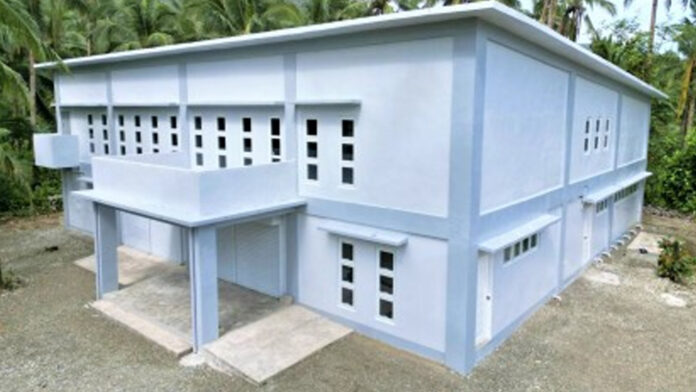A lawmaker on Thursday called for the localization of disaster risk management for a more tailored approach to calamities in the world’s most disaster-prone country.
In a statement, Camarines Sur Representative Luis Raymund Villafuerte Jr. said giving local government units (LGUs) greater control over disaster risk reduction and management (DRRM) would ensure faster, more effective responses to the increasing frequency and severity of natural disasters in the Philippines.
Villafuerte supported Environment Secretary Maria Antonia Yulo-Loyzaga’s push for improving localized disaster risk management in the country, particularly the need to develop early warning systems suited for the actual needs of specific communities.
“Local executives really need to have a greater say in disaster risk response and management in their localities as they are the ones on the ground who have a clear grasp of what needs to be done right away and in the long term in the communities under their respect areas of jurisdiction,” Villafuerte said.
He emphasized the need for a flexible disaster response system, highlighting that while the national government should retain overall control, local officials are best positioned to implement plans on the ground.
“Of course, the overall direction and supervision of DRRM (disaster risk reduction and management) must remain at the level of the national government to maintain a holistic approach to dealing with natural disasters and calamities, but the LGUs (local government units) need to be given greater control over the actual implementation of the DRRM response on the ground,” he said.
The Philippines ranks as the most disaster-prone country in the world, according to the latest World Risk Index report released in September, which scored the country at 46.91 based on exposure to disasters and vulnerability to the effects of these calamities.
Villafuerte also stressed the need to build permanent disaster-resilient evacuation centers (ECs) nationwide to help mitigate the impact of future calamities.
“We have to build climate-ready ECs all over the country so our local governments will finally be able to stop using public schools in their localities as temporary shelters for dislocated families,” he said.
House Bill 7354 mandates the Department of Public Works and Highways (DPWH) to build the ECs, and the National Disaster Risk Reduction and Management Council (NDRRMC) to coordinate with the local executives of provinces, cities, and municipalities in identifying areas to be given the highest priority in the establishment of new evacuation centers.
Once the ECs are put up by the DPWH, Villafuerte said LGUs are tasked under the bill to operate and maintain them.
Loyzaga, in an Oct. 14 interview with the Philippine News Agency, said most of the Philippines’ warnings are “based on the description of the hazard”, and that there is a need to contextualize these warnings for the people to understand the hazard they are facing.
“So we need to be able to develop, number one, early warning systems that actually speak to the different contexts of our communities, it’s not just one warning. Secondly, we need to develop an understanding of what the warnings actually say,” Loyzaga said. (PNA)




